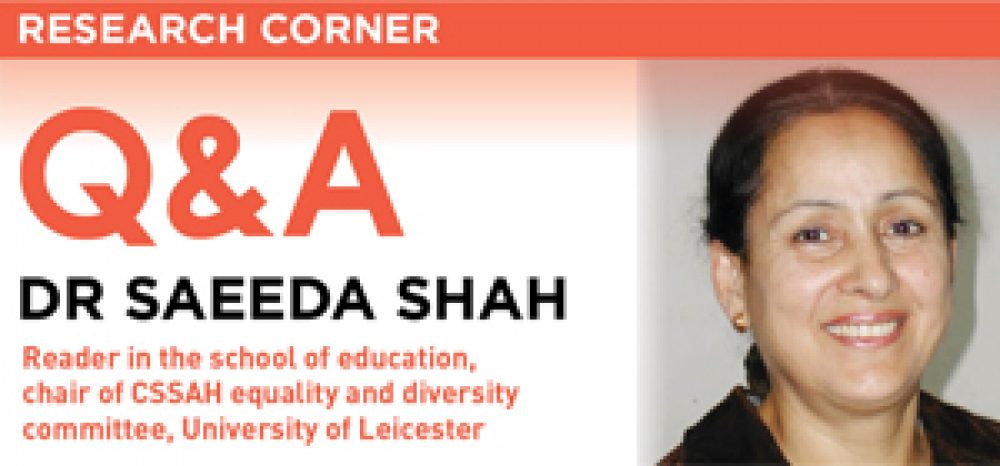What have you been researching?
I am looking at the education of Muslim students and in particular, Muslims’ expectations from education and educational leaders in contemporary societies, and Islamic faith schools.
What are the main issues?
In the wake of 9/11 and George Bush’s reaction, many young people were suddenly made aware that being Muslim was a defining aspect of their identity.
When you are living in a Muslim country, you don’t think about whether you are Muslim or not. And immigrants used to see themselves primarily as different cultural groups, but after 9/11 race identity morphed into a faith ideology. Even very small children suddenly found themselves pushed into a faith identity that wasn’t their conscious choice. When you start living with an identity, you take on that conflict, which then forms your mind and views. I don’t think any of the policymakers realised how it was going to affect an entire generation.
How do you see this mentality affecting schoolchildren in the UK?
I wouldn’t say it is clearly an educational development; it is more of a socio-political development. But schools are afraid of tackling these things head-on.
One young boy I spoke to asked his teacher, “Why are the other children calling me Paki and Bin Laden?” And the teacher responded, “It’s just a bit of teasing”. This is not teasing. These needed to be taken explicitly as racist comments. I call it religious racism, although it’s not an official term.
There need to be appropriate programmes for teachers and school leaders, to provide deeper understanding of how we can better understand and respect other human beings.
It’s not only religious leaders the government should be consulting on policy; they have often received a religious education and may not understand the needs and challenges in today’s multi-faith multicultural schools. There are plenty of Muslim academics who have a deeper understanding of the wider educational and societal context.
What do you think of the Prevent strategy?
Does Prevent really prevent? Reporting children at the slightest suspicion is dangerous for the children and for society, because they then feel alienated. Of every 100 pupils reported, there are probably 99 who didn’t need to be, but who are still isolated and singled out.
Teachers need to be taught how to deal with these issues in a deeper way. But they are also overworked, and policies from government put a lot of pressure on them. Is this really going to be for the good of society in the longer term? I don’t think it is – teachers and leaders need to be told, “We are not policing you to see whether you are reporting pupils or not, we are leaving it to your good judgment.”
What have you learned from visiting Islamic schools in the UK?
I felt a lack of close communication between Islamic faith schools and mainstream schools. The same applies to Jewish schools, which are often also isolated from the mainstream.
Segregation will mean an absence of dialogue and communication – then less and less understanding. At present, state schools may visit mosques and gurdwaras and temples, which is cultural education. But there should be more information sharing about educational issues.
If the faith schools have high achievers, what strategies are they using? How can these be shared with other schools? If mainstream schools are facing challenges, why not ask for advice from those with high numbers of Islamic students? There are many more Muslim students in mainstream schools than in Islamic schools; it is important they are brought together, and there needs to be a wider sharing of practice.
Saeeda Shah is author of Education, Leadership and Islam: Theories, discourses and practices from an Islamic perspective. Her most recent essay, Education of Muslim Students in Turbulent Times, will be published in M. Mac an Ghaill and C. Haywood (eds) Education, Neo-liberalism and Muslim Students: Schooling a ‘Suspect Community’; Palgrave Macmillan.







They are children of Muslims not Muslim students. Their choice of religion should be their own when old enough to make an informed choice.
This is perverse. It is the religionists who are the separatists. They are the ones demanding separate schooling. They are the ones trying to restrict mixing and diversity. It is the secularists who have been trying to persuade those in power to stop and reverse the growth of religiously biased education but it has fallen on deaf ears. Even they think religion is beneficial.
I just don’t see how you get children to consider themselves as having some sort of common interest whilst being guided into such conflicting ideologies.
Still, if you and others think religion is a “good idea” then I will be interested to see how you and others solve the conundrum.